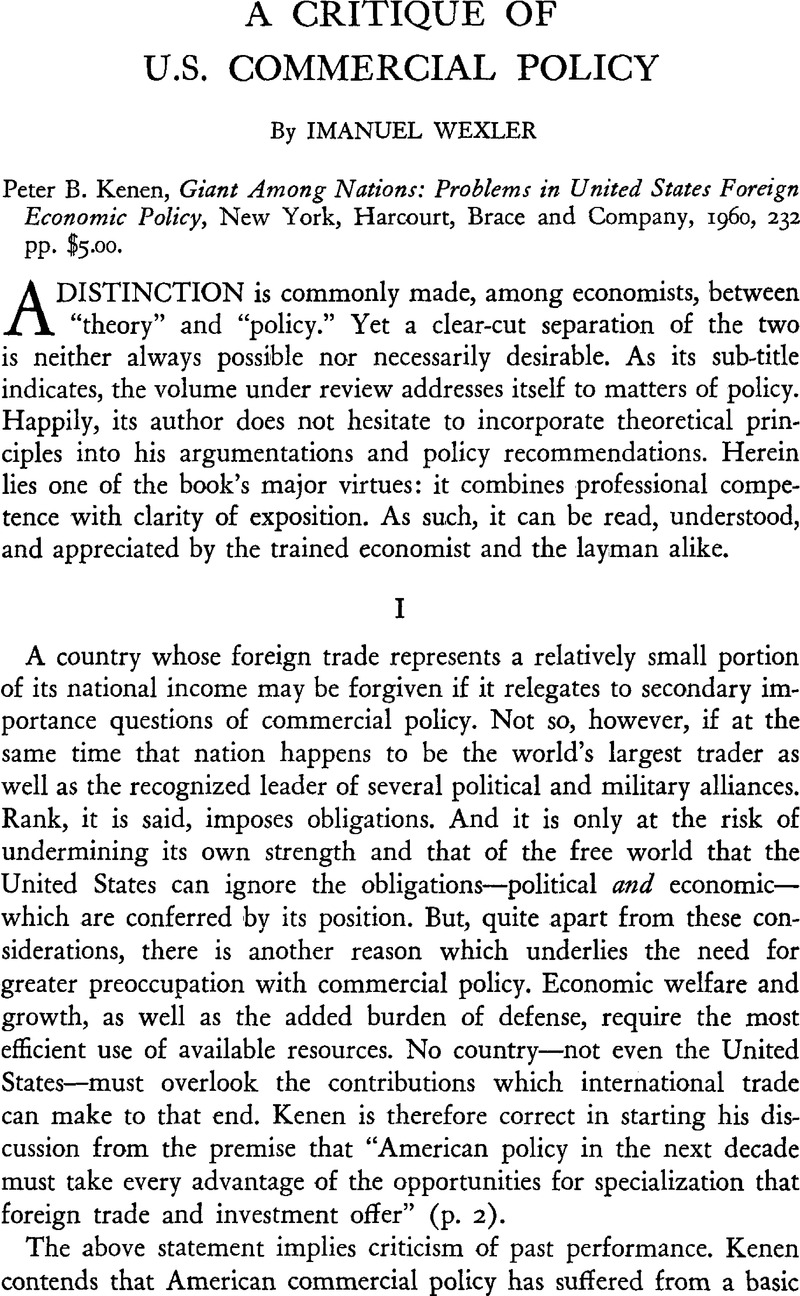No CrossRef data available.
Article contents
A Critique of U.S. Commercial Policy
Review products
Published online by Cambridge University Press: 18 July 2011
Abstract

- Type
- Review Articles
- Information
- Copyright
- Copyright © Trustees of Princeton University 1961
References
1 For a case in point, see International Labor Organization, Social Aspects of European Economic Cooperation: Report by a Group of Experts, Geneva, 1956, p. 58.Google Scholar
2 In addition to subsidizing dollar sales, the government is authorized (under Public Law 480) to sell farm commodities abroad for foreign currencies.
3 Disregarding storage costs, the difference in cost between the storage loan program and the direct cash subsidies plan lies in the elasticity of consumer demand for a particular commodity. If demand is elastic, all other things being equal, the storage loan program will involve greater expenditures than direct cash subsidies. Conversely, if demand is inelastic, cash subsidies will result in larger expenditures. Since demand for farm products is generally inelastic, it is conceivable that the direct cash subsidies required to maintain a certain level of farm income might be larger than the direct plus storage costs of a storage loan plan aiming at the maintenance of the same level of support.
4 By “consumers” and “producers” Kenen actually means consuming and producing countries. In fact, he considers it as one of the advantages of his scheme that governments, and not individuals, would compensate each other directly.
5 Loans from the Development Loan Fund are repayable in foreign currency. This poses a twofold problem: the assets of the DLF cannot revolve, and the accumulation of large holdings of foreign currencies proves an embarrassing political burden for the United States.


